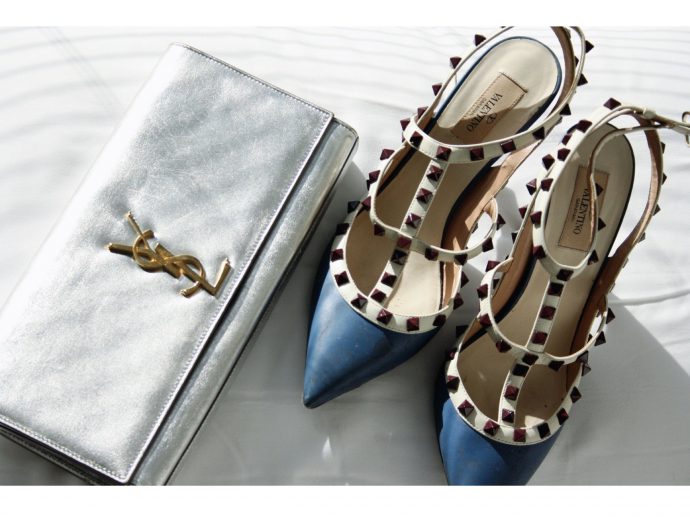Categories more
- Adventures (17)
- Arts / Collectables (15)
- Automotive (37)
- Aviation (11)
- Bath, Body, & Health (77)
- Children (6)
- Cigars / Spirits (32)
- Cuisine (16)
- Design/Architecture (22)
- Electronics (13)
- Entertainment (4)
- Event Planning (5)
- Fashion (46)
- Finance (9)
- Gifts / Misc (6)
- Home Decor (45)
- Jewelry (41)
- Pets (3)
- Philanthropy (1)
- Real Estate (16)
- Services (23)
- Sports / Golf (14)
- Vacation / Travel (60)
- Watches / Pens (15)
- Wines / Vines (24)
- Yachting / Boating (17)
Published
04/08/2022 by Tor's Thrifty StoreLouis Vuitton and Chanel are once again raising prices with record profits, but is this sustainable if there are a limited number of rich, while there's an increase in global consumers buying used luxury fashion brands recently seen by Tor's Thrifty Store?
"If you're looking for savings on just like new luxury fashion brands, you'll find it at Tor's Thrifty Store," said founder Tor Rézon. "Besides saving money, you're giving a second life to items that may otherwise go to landfills, which helps to save the planet."
Louis Vuitton posted a 2021 revenue of £53.4 billion or €64.2 billion, up 44 percent from the previous year. Chanel also increased prices twice in 12 months with a further 14 percent price increase.
Allowing consumers to pay in installments has been a winning strategy driving sales for the supper brands. Up to 85 percent of luxury brand sales priced more than £850 are purchased via a split payment option.
Years ago, only the rich could afford luxury fashion which was seen as a status of wealth and power or a status symbol.
"It might be that the fashion powerhouses are raising their prices again and again and no one will challenge them because they have a buy now and pay later plan. This makes luxury fashion more palatable to the average consumer," said Rézon.
But the pricey strategy might backfire.
Generation Z kids born between 1997 and 2012 will likely make more than any other previous generation and will disrupt the luxury fashion market. Their incomes are even expected to surpass millennials.
They are also smarter than any previous generation and are looking for value for their luxury fashion accessories without hurting the planet.
"If everyone can afford new luxury then there isn't anything unique about it anymore and there's no point buying new. The kids understand this and realize they can buy a second-hand and even a collector's piece at a fraction of the cost of a new item," said Rézon.
When people start understanding they could buy the same fashion item for less, that might also create a rebellion against high prices from these fashion powerhouses. This new consumer mentality will affect how today's kids make buying decisions as they reach their peak earning years around 2035.
Kids are growing up in a world of high inflation and will inherit all kinds of global problems such as climate change. It will also be more difficult for them to build wealth. They're learning early if they want to get ahead in life, they need to look for value.
"They know more things. They might be young, but they know how to work in the digital world. They also have opinions, ideas, plans, and know how to network to get things done," said Rézon.
The strategy of Generation Z to attain quality brands is also different than any other generation. If a fashion-loving teenager puts aside most of her weekly tips while working at the local pub, it will take years to pay for a new Chanel handbag.
The same teenager can speed up the process and purchase a previously loved Chanel 19 Dark Beige Medium Flap Bag Collector's piece right now that's like new but for about 25 percent less. Rézon says the young generation doesn't see anything wrong with saving money and buying quality reused products.
"Even the two-thirds that are helped by their parents to pay for luxury goods, are still conscious of buying value. They learn from TikTok peers how to save, invest and stretch their money. Also, 90 percent of buyers live in emerging markets," said Rézon.
That spells disaster for high-priced luxury fashion brands. We've already seen some collateral damage with brands such as Forever 21, Topshop, J. Crew, Neiman Marcus, and others filing for bankruptcy during the pandemic.
"Remember, when you're buying a preloved luxury brand from Tor's Thrifty Store, you're not only saving money but protecting our planet. By extending luxury fashion by just nine months, you're reducing its carbon, water, and waste footprint by 20-30 percent," said Rézon.
















